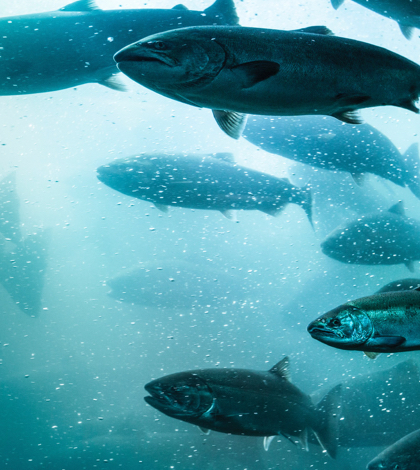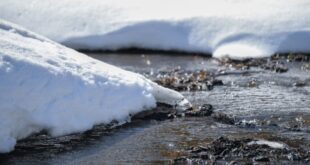Salmon will be Scarce and Pricy for Consumers
Perhaps you should consider consuming another fish other than pacific salmon this year.
Following six days of meetings the federal fishery council in Vancouver, Wash., has proposed
restrictions for the state’s commercial salmon fishing season, scheduled to begin early next month, and includes the sport fishing season, which started April 2. The National Marine Fisheries Service is expected to enact the council’s proposal when they convene on May 1.
California, having endured four years of near-unprecedented drought, is still experiencing its effects in spite of some wet-weather relief in Northern California this year. Salmon were once plentiful along California’s coast but changes in their natural habitat–rivers being dammed, spawning grounds were disrupted– saw their numbers fall. The problem was accelerated with California’s drought when the salmon struggled to navigate low-flowing rivers and warm ocean water that impacted their food supplies.
Salmon are born inland in freshwater, then migrate to the ocean before returning inland to spawn three years later. In contrast with California’s four-year drought salmon need cold, plentiful water to successfully complete this cycle. The National Oceanic and Atmospheric Administration fisheries agency claims that only about 3 percent of juvenile salmon survived their balmy, shallow swim to the ocean.
The salmon industry provides 23,000 jobs in California; it represents a $2 billion industry for a combined California and Oregon. Many fishermen cast their lines for crab in the winter and salmon in the spring and summer. The crab season was cut short by a toxic algal bloom and now years of new dams, disrupted spawning grounds and drought have forced new restrictions on salmon fishing.
“It’s kind of a survival year,” said Dave Bitts, a Northern California trawler who serves as an adviser to the Pacific Fishery Management Council. “I don’t think anyone is going to get rich.”
The Pacific Fishery Management Council has announced that their proposal will leave fishermen with approximately half of the fishing season as compared with last year. The Council—made up of industry representatives, government personnel ad scientists—oversees recreational and commercial salmon fishing of the coastlines of California, Oregon and Washington.
John McManus, the executive director for the Golden Gate Salmon Association, summed it up saying, “While fishermen are not happy to have restricted seasons, they realize their responsibility to be god stewards.” Dates for both commercial and recreational salmon fishing will vary from location to location but the entire commercial salmon fishing industry will be closed the whole month of July.
What does it all mean for the salmon hungry consumer this summer?
It’s too early to predict the price of wild salmon but the anticipated scarcity will inevitably drive prices up. Until the fishermen return to the docks with their catch in the nets we can only guess at the prices we will pay. Just be prepared to pay more and hope that salmon is even on the menu.
 California Water News Daily Your Source For Water News in California
California Water News Daily Your Source For Water News in California


